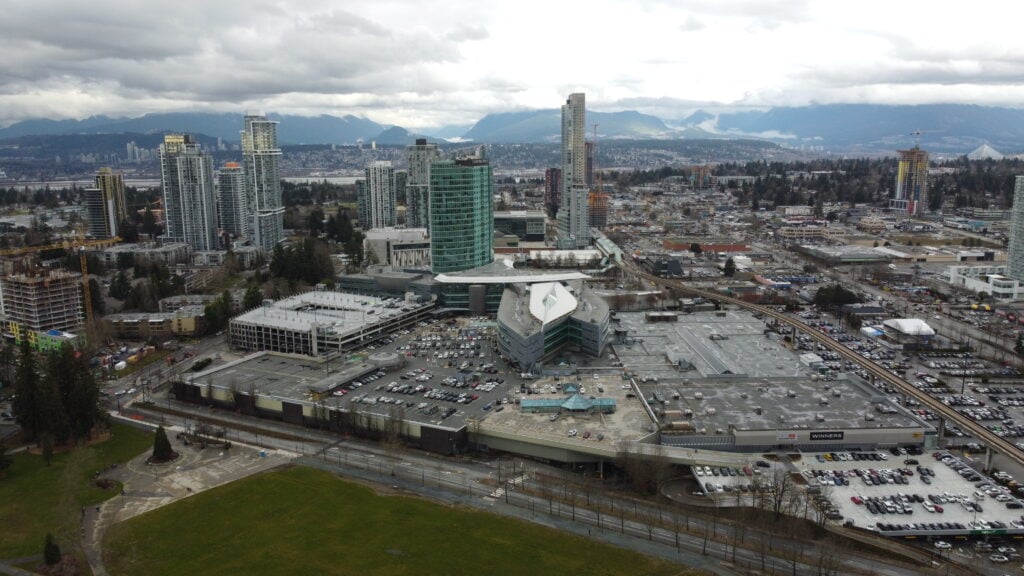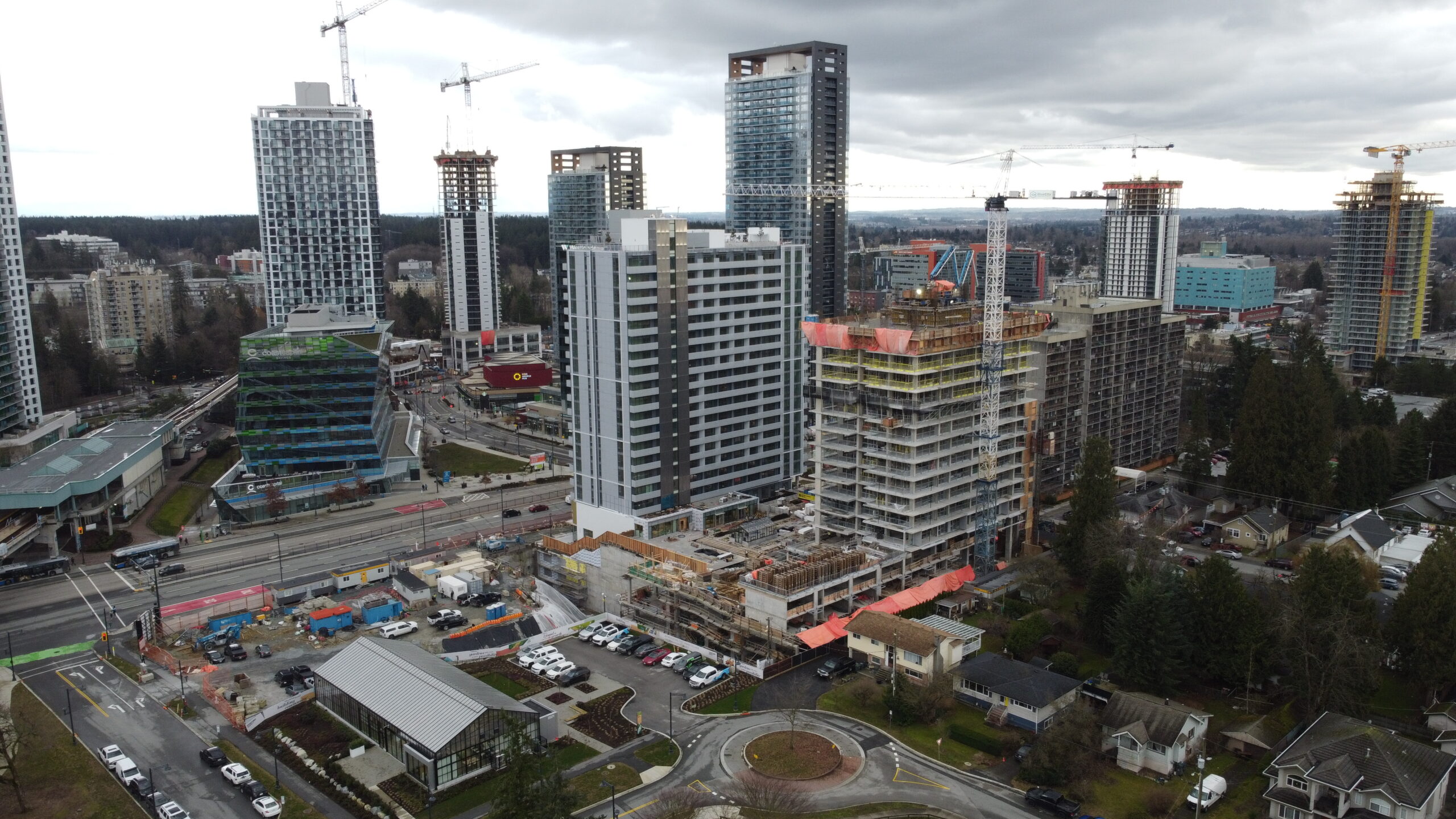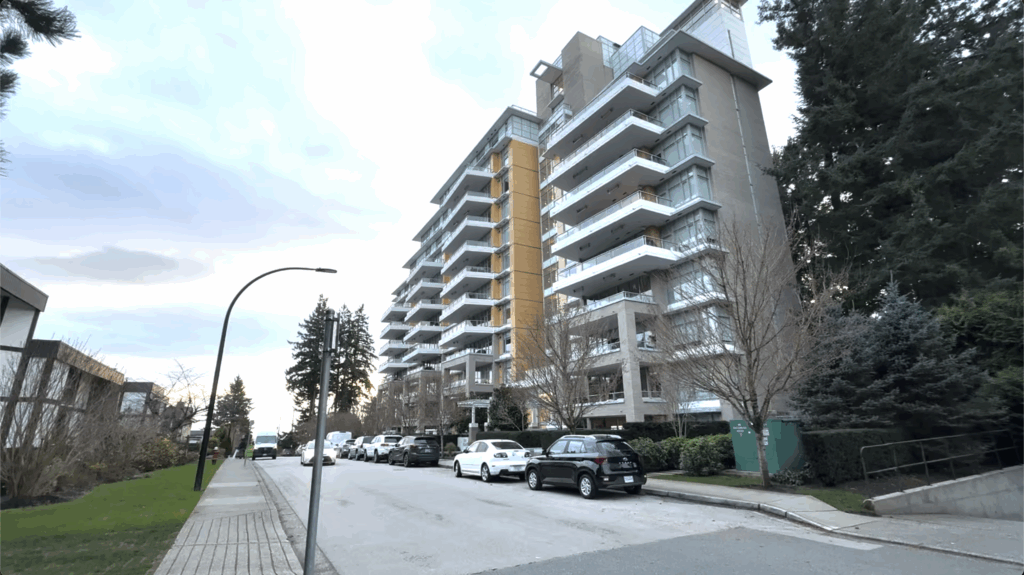A Look at BC’s New Short-Term Rental Accommodations Act
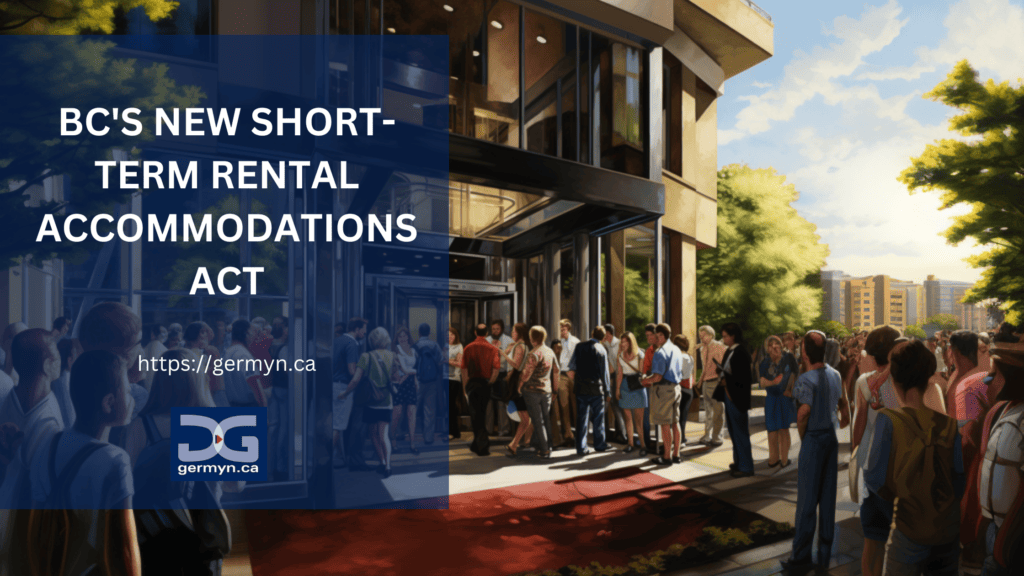
The booming short-term rental industry in British Columbia lacks proper regulation, leading to:
- Housing affordability issues
- Neighbourhood disruptions
- And a lack of consistent guidelines for homeowners and travellers.
What’s the best way to address these challenges? Enter the B.C. government’s new Short-term Rental Accommodations Act.
This legislation aims to regulate and govern short-term rentals. It provides a framework for enforcement and penalties for non-compliance.
Are you thinking of selling your short-term rental property to avoid penalties?
In this article, we will explore the key provisions of the act and discuss its impact on homeowners and travellers.
Understanding Short-Term Rentals in BC
Short-term rentals have become a popular investment option for property owners. In fact, just a few months back, we discussed buying short-term rentals as your investment property in Surrey.
That’s because they offer a unique opportunity for property owners to generate huge profits. It often surpasses what traditional long-term rentals can provide.
However, the rapidly expanding short-term rental market has raised concerns. It led to the introduction of new regulations in Surrey, BC, and across the province.
The Allure of Short-Term Rentals
Why do people invest in short-term rentals?
The answer is simple: they can be cash cows. Compared to traditional tenancy, short-term rentals offer several advantages.
These rentals allow for:
- Quick turnovers
- The ability to charge premiums while remaining competitive with hotels
- And the integration into well-established neighbourhoods, providing guests with a more authentic experience.
Short-term rental listings also offer amenities such as:
- The ability to cook
- Accommodate entire families
- And eliminate additional costs for services like Wi-Fi and parking.
The Impact of Short-Term Rentals on Housing Stock and Communities

The problems associated with short-term rentals impact both the housing stock and communities. In particular, the long-term market. While the short-term market may offer financial benefits to property owners, they come with drawbacks.
These Airbnb-style rentals remove housing stock from two important groups: renters and homebuyers.
As a result, it becomes challenging for individuals to secure long-term housing. This is especially true in areas with a high concentration of short-term rental units.
This adds to the immense housing crisis we are currently facing in Surrey and almost all other larger municipalities in the province.
In addition to the attainable housing issue, residents often express discontent due to:
- Increased traffic in their neighbourhood or building
- Making for a more transient nature of the occupants
- And a sense of loss in pride of ownership of property in communities.
Condominiums and strata properties are particularly affected when units are rented to new guests. Municipal bylaws often restrict short-term rentals, but bylaw enforcement is a common issue.
British Columbia’s Government’s Response to Short-Term Rentals
The Short-Term Rental Accommodations Act
To address these challenges, the BC government introduced B.C.’s Short-Term Rental Accommodations Act. It’s commonly known as the short-term rental bill.
B.C.’s new short-term rental ban defines short-term rentals as those rented for less than 90 days and applies to cities with over 10,000 people. An estimated 16,000 short-term rental units exist in BC, highlighting the need for regulation.
The primary goal of the new rules is to empower local governments for enforcement of bylaws more effectively. This is to return short-term rental units to the long-term rental market. Thereby establishing new provincial government enforcement tools in regulating short-term rentals.
The regulations cover all short-term rentals offered to the public through various platforms. Especially online platforms, including:
- Airbnb
- VRBO
- Expedia
- and others.
Key Provisions
Effectively, these new rules will limit the ability to rent out a home or unit as a short-term rental offer to your primary residence only. You are also allowed to have one secondary suite or laneway home/garden suite on your property.
This means you must occupy the home as your primary place of living. You could still rent out a:
- Room
- Basement suite
- Coach home
- Or even the entire home while you are out of town, perhaps on a holiday or otherwise.
The new rules require hosts to provide short-term rental information. This includes their provincial registration number on their listings. If the local government requires it, also the business license number.
Platforms like Airbnb and VRBO will need to validate these registration numbers against the province’s registry data.
The new regulations will be phased in over the next two years. Some provisions take effect immediately, such as increased fines. Also, the authority for regional districts to issue business licenses.
So, it’s best to stay up-to-date to ensure short-term rental compliance.
By May 1, 2024, the principal residence requirement will be enforced. This is with additional changes and data sharing scheduled for later in the year.
Are There Communities That Will Be Exempt From the New Provisions?
Yes, 14 resort communities in BC will be exempt. However, they will have the ability to “opt-in” to the new provincial framework if decided by the municipal government.
These include:
- City of Fernie
- Town of Golden
- Village of Harrison Hot Springs
- District of Invermere
- City of Kimberley
- Town of Osoyoos
- Village of Radium Hot Springs
- City of Revelstoke
- City of Rossland
- Sun Peaks Mountain Resort Municipality
- District of Tofino
- District of Ucluelet
- Village of Valemount
- And the Resort Municipality of Whistler.
Also, additional types of properties are being considered for exemption from the regulations. Yes, fishing lodges and timeshares, I’m talking about you.
Municipal Initiatives for Short-Term Rentals
Surrey is not the only municipality addressing the issue of short-term stays. Many other cities and adjacent communities are taking steps to regulate them, including:
- Dawson Creek
- Lake Country
- Pitt Meadows
- Qualicum Beach
- Salmon Arm
- West Vancouver
- North Vancouver
- White Rock
- North Cowichan City
- North Saanich
- and many more!
The long list of communities recognizes the impact on housing availability. These initiatives strike a balance between property owner interests and community well-being.
The Federal Government’s Stance on Short-Term Rentals
It’s true that the housing regulation typically falls under provincial jurisdiction. However, the federal government is closely monitoring the situation. This is because of the pressing issue of housing availability.
Finance Minister Chrystia Freeland endorsed BC’s efforts to regulate short-term rentals. She also acknowledged that the federal government is examining ways to address housing concerns.
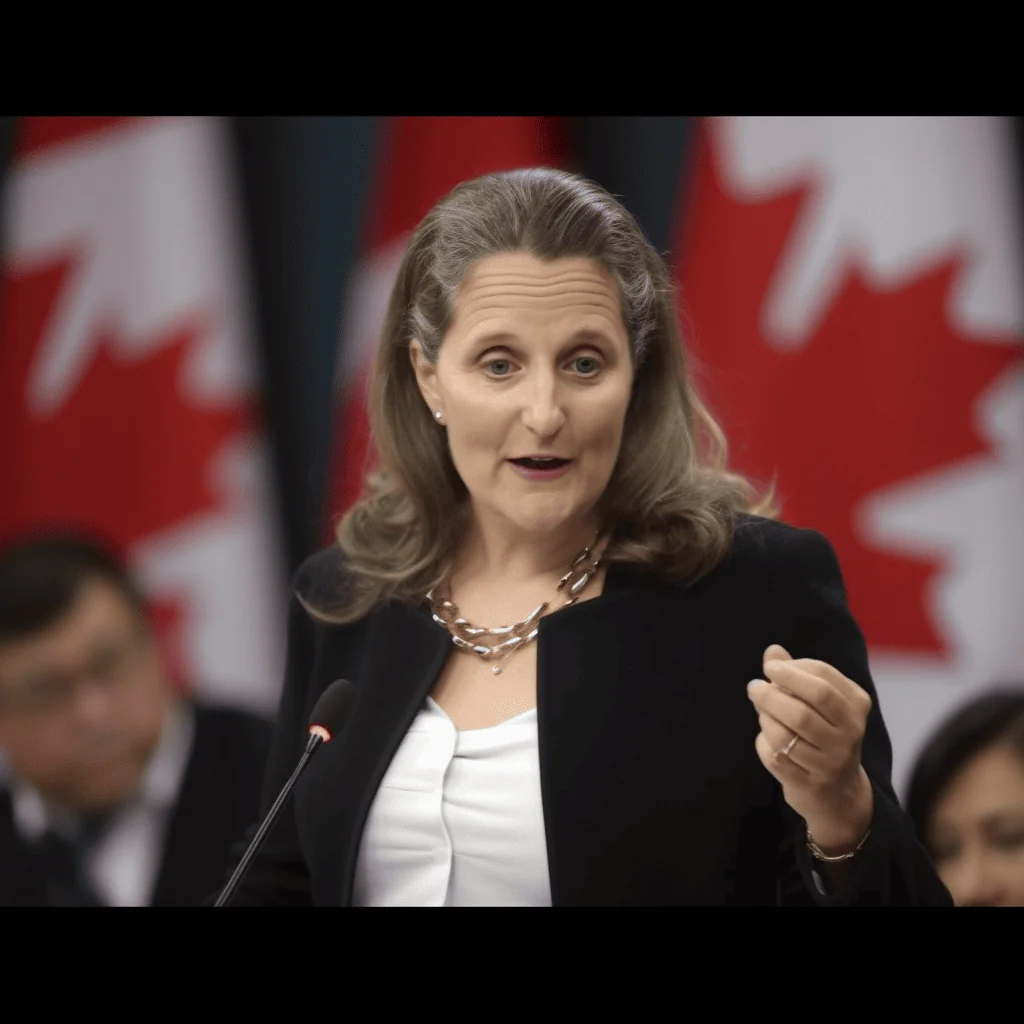
“I also want to quickly address the BC government’s new legislation to regulate the short-term rental market,” said Freeland. “It is a positive and important step in the right direction in an area of provincial jurisdiction.”
Freeland added that housing is such a big issue that the federal government is looking at everything it can do. The end goal? To help bring housing stock back to those who live in the community.
Risks of Short-Term Rental Investments
Is It Risky to Buy a Property for Short-Term Rental?
The popularity of B.C.’s short-term rental market has made them a profitable investment option in the past. However, the regulatory changes and increased short-term rental bylaws. This includes the potential for maximum penalties.
Regulations which may impact their profitability in the short-term rental market. As governments implement more regulations, it’s essential for property owners to be aware.
Additionally, the influx of parties entering the short-term rental market increased competition for vacationers. Some properties are also sitting empty more frequently. This deprives individuals of affordable long-term rental homes that they need for housing stability.
With the ability for municipalities to enforce restrictions at any time and the growing competition in the short-term rental market, operating short-term rentals for investment purposes is becoming increasingly risky.
Property owners must consider the potential risks, including the imposition of maximum penalties, as they navigate the changing regulations and increased competition in the market.
What Does Surrey Think About Short-Term Rentals?
Surrey, like many other municipalities, is grappling with the challenges posed by short-term rental accommodation services.
The city is striving to balance the interests of property owners with the needs of renters, homeowners, and communities.
This is an ongoing discussion at the City of Surrey right now.
In July of 2023, Surrey city staff were assessing the city’s short-term rental market after the council approved a related motion toward regulating it.
Coun. Pardeep Kooner presented a motion asking for a report on the “approximate” inventory of short-term accommodations in this city, as well as “adverse impacts” on neighbours – like noise and parking complaints – and “potential adverse impacts to long-term affordable rental accommodation inventory.”
Kooner also called for a review of “best-practice” approaches that other North American cities have adopted to regulate the short-term accommodation market, “including recommendations for council’s consideration to exploring implementing viable regulations.”
Utilizing Airbnb or VRBO in Surrey
What Can You Do If You Want to Make Use of Airbnb or VRBO in Surrey?
Are you considering using platforms like Airbnb or VRBO for short-term rentals in Surrey? Then, it’s important to be aware of the regulations and requirements.
This includes the principal residence rule and the necessity of provincial registration.
What Will Be the Impacts of These New Regulations?
The new regulations are expected to have several impacts. One significant impact is the addition of more rental units to the market for both homebuyers and investors in the larger community. This helps address the low vacancy rate and housing shortage.
Municipal ticketing will be implemented to enforce compliance with the regulations. That includes penalties for violations and bylaw offences. Thus ensuring that individuals who do not adhere to the rules will face legal consequences.
This provincial oversight drives guests back to areas designed to accommodate transient traffic. Fostering a sense of peace in residential neighbourhoods not built for constant turnover.
Thus, the new regulations mitigate challenges posed by short-term rentals. While providing legal non-conforming use protection for existing rental units that do not comply with the new rules.
Can You Do Short-Term Rentals in BC?
Yes, you can still engage in short-term rentals in British Columbia (BC) under certain conditions.
The new regulations in BC, which have received royal assent, limit the ability of short-term rental hosts.
They are only able to rent out a home or unit as a short-term rental to their primary residence only. However, hosts are still allowed to have one secondary suite or laneway home/garden suite on their property.
This means that they can rent out a room, basement suite, coach home, or even the entire home while they are out of town, such as on a holiday.
The regulations aim to address the current housing crisis. How? By providing more rental units for both homebuyers and investors in the larger community.
To ensure compliance with the regulations, an enforcement unit will be responsible for enforcing the rules. They will also penalize short-term rental hosts and short-term rental platforms that do not adhere to the regulations.
This includes the implementation of municipal ticketing and other measures to deter violations. Thus, maintaining the peace in residential neighbourhoods not designed for constant turnover.
What Is Considered a Short-term Rental in Canada?
In Canada, a short-term rental is typically defined as a rental property that is rented out for a period of less than 90 days.
This definition applies to cities with a population of over 10,000 people. Short-term rentals include various types of accommodations, such as:
- Apartments
- Houses
- Condos
- Or rooms that are made available for temporary stays by guests.
These rentals are commonly facilitated through platforms like Airbnb and VRBO.
Is 6 Months Short Term?
No, a rental period of 6 months is not considered short-term. Short-term rentals typically refer to temporary stays that are shorter in duration, typically less than 90 days.
Renting a property for 6 months is often classified as a medium-term or long-term rental. However, specific definitions and regulations may vary depending on the jurisdiction and context.
So, it is always advisable to consult local laws and regulations to determine the classification of rental terms in a particular area.
Ready to Sell Your Short-Term Rental Property?
The BC government’s introduction of the Short-Term Rental Accommodations Act reflects a growing awareness. There’s a need to strike a balance between property owner interests and community well-being.
These regulations aim to address the issues associated with the rental of units. To further ensure the availability of housing for residents and long-term renters.
The growing short-term rental challenge means that property owners must stay informed. Staying updated helps you adapt to changing regulations.
As the industry continues to evolve, the impacts of these changes will become clearer. Communities like Surrey will work to foster harmony in the housing market.
Are you interested in buying a short-term rental in Surrey? Or perhaps after reading this article, ready to sell one? If so, be sure to connect with the realtors at Germyn Group. We will help you in navigating the process from start to finish, ensuring you come out on top!
People lose money in real estate because they don't know what's actually happening.
Our YouTube channel fixes that.
We show you what most agents won't – what's really happening in Surrey & White Rock, and how to win whether the market's up or down.
It's free. No fluff. All signal.
Subscribe now — or stay guessing.

